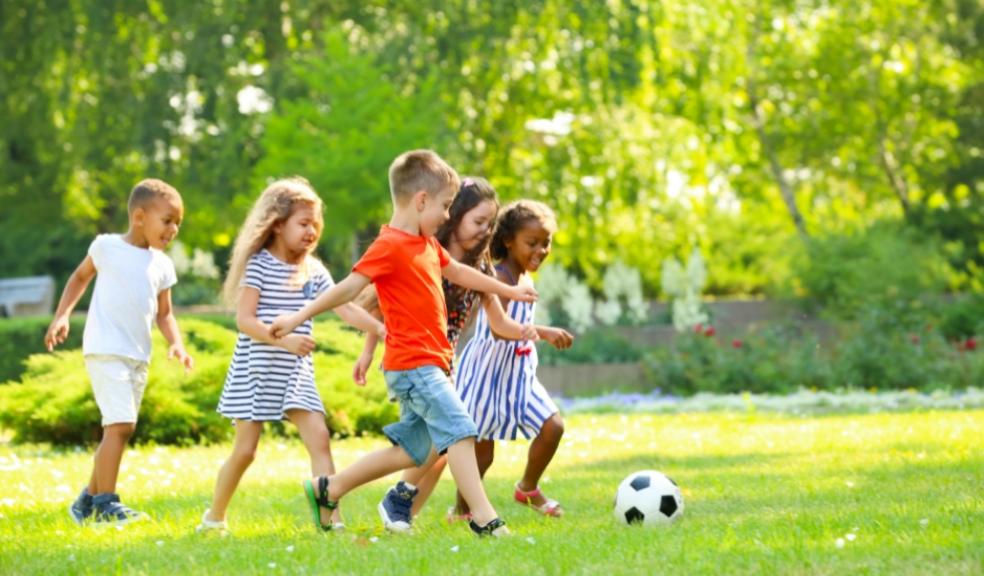
Less than one in five under 6s getting the physical activity they should following the pandemic
Cost of living crisis may make things worse, as cost is a major barrier to more physical activity – especially for the poorest
A survey of 1,000 parents for children’s charity, the Early Intervention Foundation, has found that only 19% of children between the ages of one and five get more than three hours of physical activity a day – meaning most children are getting less than the officially recommended amount needed to grow up healthily.
In households earning under £30,000 this was only 13%, versus 23% where the household income was over £50,000.
In the context of widening post-lockdown health disparities, particularly along socio-economic lines, and a growing obesity gap, the charity says the lack of physical activity amongst children under six is concerning.
The Early Intervention Foundation’s 2021 report ‘Growing up in the Covid-19 pandemic: An evidence review of the impact of pandemic life on physical development in the early years,’ had previously found ‘the majority of studies of older children or studies from other countries report a decrease in physical activity as well as a decrease in positive attitudes towards physical activity as a result of Covid-19.’
This new survey, carried out by YouGov, of UK parents of under 6s found only four in 10 (40%) children have increased their physical activity since the most recent lockdown lifted. More than one in ten (11%) of households with an income under £30,000 believed their child’s physical activity will be less than last summer, compared to only 3% of households with income over £50,000.
Cost of accessing safe spaces to play
Cost is a particular factor preventing more physical activity amongst children under six. The cost of living crisis therefore could further worsen health disparities and discourage parents from taking young children to indoor or outdoor play areas, such as public parks, indoor play centres and children’s centres.
27% of parents surveyed stated the cost of accessing spaces for physical activity (such as soft play areas or classes) was a factor preventing their child from doing more physical activity. Cost is the most cited factor for households with an income under £30,000, whereas a lack of time was the most cited reason by those with higher incomes (over £50,000).
Of those who said their child did not have access to as many play and open spaces as they'd like, a fifth (21%) said the main reason for this was due to the poor standard of play facilities and open spaces near them.
In addition, 12% of parents stated play or outdoor space feel unsafe or dangerous, with 21% of households with incomes under £30,000 stating this was the main reason, compared to just 5% of households with incomes over £50,000.
Dr Jo Casebourne, chief executive at the Early Intervention Foundation commented: “In light of growing health disparities between disadvantaged children and their better-off peers, it is concerning to know that so many parents are worried about the cost of taking their child to a play area.
“We think parents, especially those from low-income households, need access to affordable and safe spaces and we need to ensure that children’s physical activity isn’t forgotten about post-lockdown. Getting enough physical activity in the early years is essential for children’s physical and mental wellbeing, as well as their development throughout childhood and positive health outcomes later in life.”
“Andrea Leadsom’s Best Start for Life review and Michael Marmot’s 10 Years On report are both clear on how important the early years are, and how children living in poorer households have significantly worse health outcomes than other children – and that’s before we account for the current challenges facing many families’ finances.”
Recommendations
In the short-term, to ensure health disparities don’t become embedded and continue widening, the charity recommends that the government continues to build on its commitments outlined in the most recent Spending Review to provide more comprehensive support for families. This included the stated investment in breastfeeding services, parent-infant mental support, and funding the rollout of Family Hubs.
The charity also says the government needs to ensure physical activity can be supported through early childhood education settings, schools and Family Hubs, once the latter are established. To complement this, the Early Intervention Foundation recommends prioritising providing children – especially those from low-income households – with access to affordable and safe play and open spaces.
Longer-term, the charity says there is a need to support the trialing of promising interventions that work with families or caregivers to foster early physical development (such as support specifically designed to increase physical activity and improve healthy eating habits and routines, as well as other lifestyle changes) which – if found to be effective – could be scaled up across the country to a similar level as the catch-up literacy programmes currently funded by the government.














